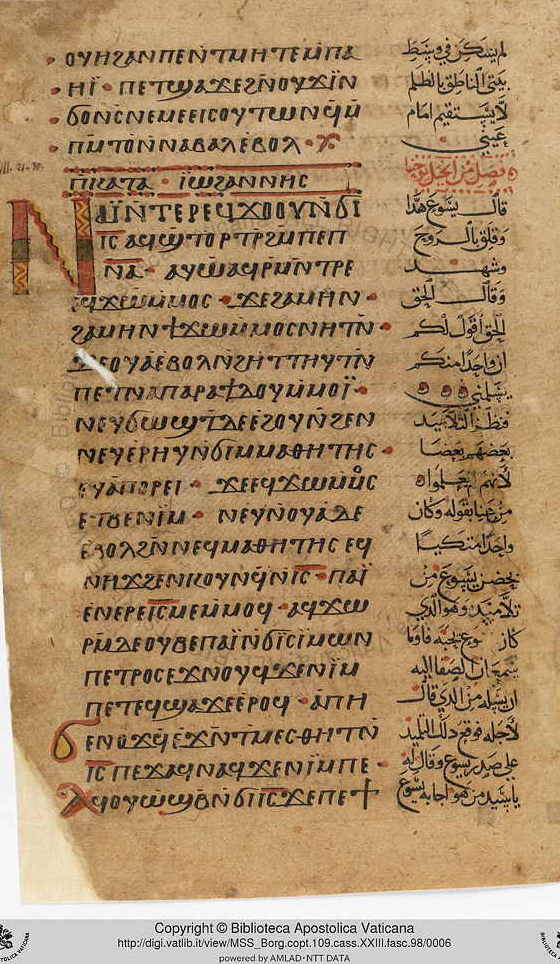Timely for Easter comes the launch at the Göttingen Academy of Sciences and Humanities of a new project closely related to and hosted on the same premises as the Digital Edition of the Coptic Old Testament. This new satellite project is dedicated to the Coptic Holy Week lectionary which is one of the fundamental books for Christian worship in Egypt. It is co-led by Diliana Atanassova and Frank Feder. Lina Elhage-Mensching occupies the position of Research fellow and Peter Missael is the Research assistant. 
Despite its significance, the Coptic Holy Week lectionary in Sahidic, Bohairic and Arabic is still under-researched. The text of the oldest Sahidic Holy Week lectionaries (10th to 14th c.) has been only sporadically used for comparison when investigating the younger Bohairic tradition but has otherwise remained completely unexplored. What is more, the Arabic texts in the Coptic Holy Week lectionaries have been studied only superficially or not at all. The existing editions of the Bohairic Holy Week lectionaries no longer correspond to current scholarly standards. In contrast to earlier research, which can only be described as sporadic, selective, and incomplete, the project aims at a comprehensive and systematic investigation of the Holy Week lectionary in Egypt.
The first principal objective of the project is to provide a digital edition of the oldest extant Holy Week lectionary of the Egyptian Christians. The digital edition will generate both a semi-diplomatic edition of the individual textual witnesses and a critical redaction of the Holy Week lectionary, in which Sahidic, Bohairic and Arabic texts from parchment and paper manuscripts will be compared with each other. For the purposes of this study, the digital edition will use and further develop the infrastructure of the Virtual Manuscript Room (http://coptot.manuscriptroom.com) of the Göttingen Digital Edition of the Coptic Old Testament.
The second principal objective is the exhaustive analysis of the Holy Week lectionary and of its development as a lectionary type in Egypt. The analysis will involve a text-historical classification of the biblical transmission in the lectionaries in comparison to the overall transmission in the biblical manuscript tradition. The Göttingen Virtual Manuscript Room will be of great help in achieving the second principal objective as well.
Through the use of innovative editorial tools and methods, the digitally based analysis of the Holy Week lectionary will close the research gaps described above. The project is therefore of the greatest significance both for Coptic and for Liturgical Studies and will provide a deeper understanding of the religious life of the Coptic Church, one of the largest and most important Oriental Orthodox Churches.
 Blogs
Blogs  Letzte Blogger
Letzte Blogger 




